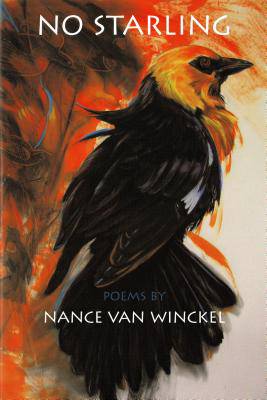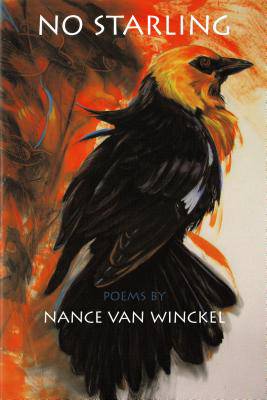
- Afhalen na 1 uur in een winkel met voorraad
- Gratis thuislevering in België vanaf € 30
- Ruim aanbod met 7 miljoen producten
- Afhalen na 1 uur in een winkel met voorraad
- Gratis thuislevering in België vanaf € 30
- Ruim aanbod met 7 miljoen producten
Omschrijving
The new century peeled me bone bare like a song
inside a warbler - that bird, people,
who knows not to go where the sky's
stopped.
Over the years, Nance Van Winckel's extraordinarily precise and energetic voice has built upon its strengths. Unpredictable, wry, always provocative, displaying a sure
and startling command of images and ideas, her poems make every gesture of language count. In No Starling, Van Winckel accomplishes what has proven to be so difficult for poets across time: a deeply satisfying balance of the spiritual and political. Although richly peopled with figures from this and parallel worlds - Simone Weil, Verlaine, Nabokov, Eurydice, "the new boys" working in the morgue, and others - No Starling moves beyond a reliance on the dramatic resonance of individual characters. Its vision is deeper, its focus both singular and communal: the self on its journey through the world ("Mouth, mouth: my light / and my exit. Let nothing / block the route"), and our responsibilities as a people for the precarious state of that world.
Slate
My too-sharp lefts kept making the bundle in back
sluice right. I was driving with the dead Nance
in the truck bed. The gas gauge didn't work
so there was an added worry of running
out of juice. Her word. Her word one
windy evening with the carpets
stripped from a floor, which
surprised us as stone - slate
from the quarry we were
headed to now, but Let's first have us
some juice, she'd said, then, barefoot on bare slate.
The truck-bedded Nance, wrapped in her winding sheet,
thuds left, clunks right. I'm sorry about my driving,
sorry about the million lovely pine moths mottled
on my windshield. Thank God, here's the quarry,
and there's the high ledge, where, as a girl long
ago, she'd stepped bravely from the white
towel and stared down. Then she'd held her nose
and leapt out into it - this same cool and radiant air.
Specificaties
Betrokkenen
- Auteur(s):
- Uitgeverij:
Inhoud
- Aantal bladzijden:
- 76
- Taal:
- Engels
- Reeks:
Eigenschappen
- Productcode (EAN):
- 9780295987354
- Verschijningsdatum:
- 2/08/2007
- Uitvoering:
- Hardcover
- Formaat:
- Genaaid
- Afmetingen:
- 162 mm x 240 mm
- Gewicht:
- 353 g

Alleen bij Standaard Boekhandel
Beoordelingen
We publiceren alleen reviews die voldoen aan de voorwaarden voor reviews. Bekijk onze voorwaarden voor reviews.











